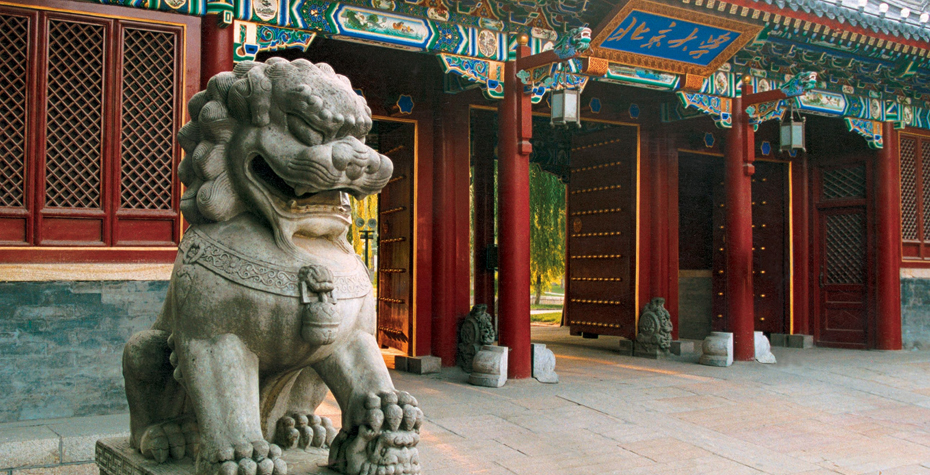First in a Series of Collaborations on Education of Women for Leadership

On January 15, 2013, Wellesley College President H. Kim Bottomly announced the first in a series of collaborations that Wellesley College plans to develop with distinguished educational institutions throughout the world: The Wellesley College-Peking University Partnership for Women’s Leadership in a Global Era.
The collaborations are intended to amplify Wellesley’s role as a preeminent global resource and authority on the education of women for leadership. As part of the partnership with Peking University, Wellesley is planning an exciting ptogram, Empowering Women for Leadership: Challenges of an Urban Future, to be held June 5-15 in Beijing, China. Students and faculty from both institutions will be invited to participate.
Wellesley College has longstanding ties with China. In 1906, a Chinese delegation visited Wellesley at the urging of the Empress dowager who was interested in the education of women. Mei-ling Soong, later Madame Chiang Kai-shek, graduated from the College in 1917, and since then, Wellesley has been recognized in China as a leader in the education of women. Today, Wellesley enrolls some of China’s highest-achieving students. This history uniquely positions Wellesley to collaborate with a leading Chinese university on the cultivation of women’s global leadership through the liberal arts.
Peking University (also known as Beida) is a very strong institutional partner for an initiative that integrates students from both schools. Identified as one of the top 10 universities by the Chinese government’s Project 211, Peking University was also one of the first institutions in China to receive the resources necessary to achieve “world class” status. Beida is well recognized for its array of international partnerships with other prestigious universities. The presence of its own liberal arts college within the university (Yuanpei College) makes Beida a singularly appropriate partner to join Wellesley in broadening the dialogue about the role of the liberal arts in addressing global issues. Moreover, Beida is keenly interested in focusing on women’s leadership.
Empowering Women for Leadership: Challenges of an Urban Future
The June initiative is modeled on the curricular and pedagogical methods of Wellesley’s Madeleine Korbel Albright Institute for Global Affairs. The two-week program will include a multidisciplinary examination of global issues by faculty, outstanding practitioners, and thought leaders. It will employ field-based learning pedagogies as well as interactive group assignments. Faculty from Wellesley College and Peking University, and key thought-leading practitioners from both the United States and China will be represented. Secretary Madeleine Korbel Albright ’59 will deliver the keynote address, and the program will culminate in a one-day summit exploring the importance of women’s leadership in a global era.
Empowering Women for Leadership: Challenges of an Urban Future initiative will:
• extend the multidisciplinary approaches that have proven successful at the Albright Institute for Global Affairs;
• encourage faculty from both institutions to share expertise and collaborate;
• include contributions from expert practitioner alumnae/i from both institutions;
• foster learning through multidisciplinary teams composed of students from both institutions. Student groups will conduct research, interview experts, and deliver final presentations to distinguished professors and expert practitioners;
• prepare women for global leadership positions.
This joint initiative will enroll up to 40 students, drawn equally from Wellesley College and Beida’s Yuanpei College. Topics will include the ethical, environmental, and economic challenges currently faced by urban centers around the world. All sessions will be taught in English (proficiency in Chinese is not required) and will be open to rising juniors and seniors with an interest in global affairs. Participating fellows will receive transportation, housing and meals, and a modest per diem stipend.
To learn more about eligibility requirements, application and program timeline, and selection criteria, please visit the Challenges of an Urban Future website.
